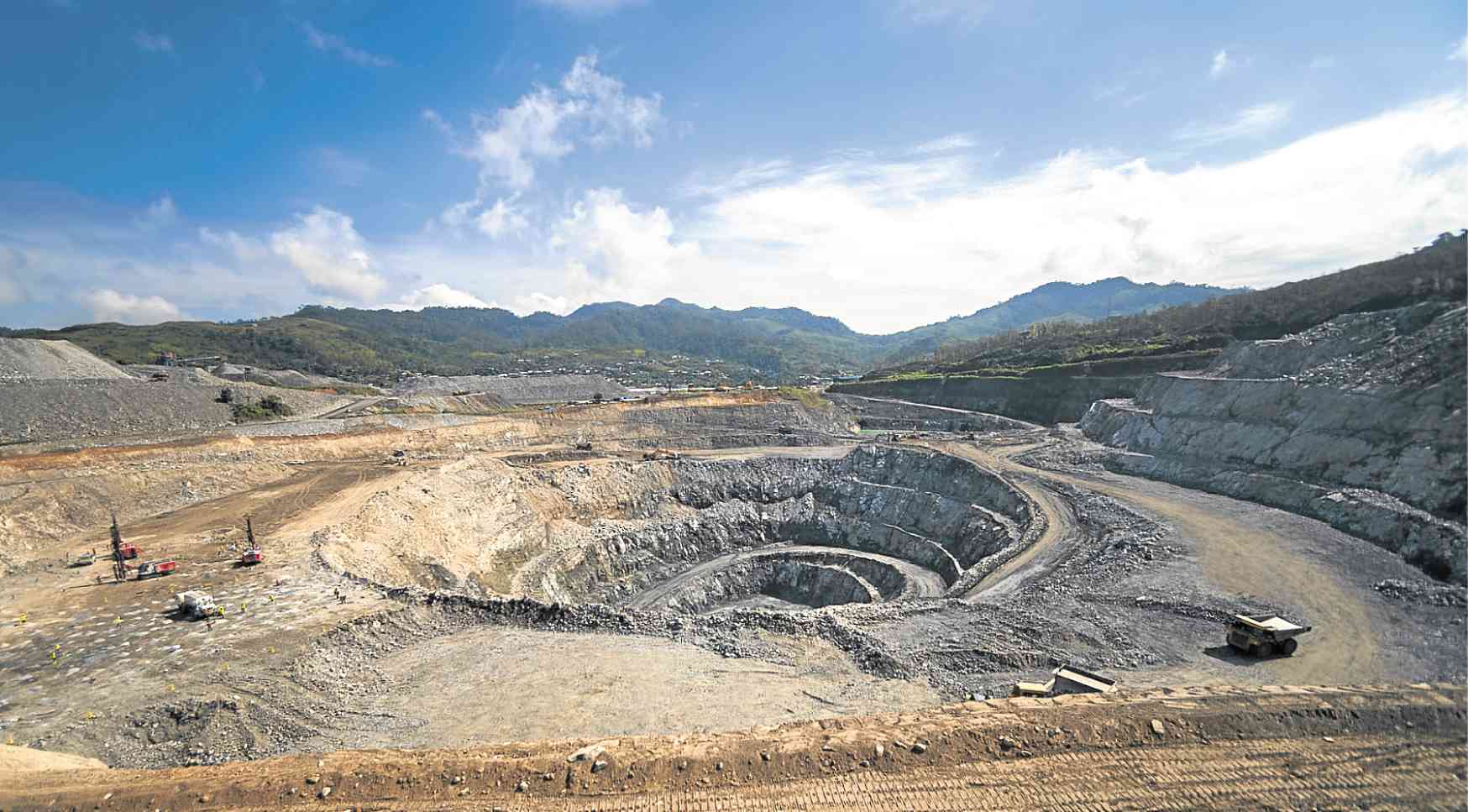
An open-pit gold-copper mining area in Barangay Didipio, Kasibu in Nueva Vizcaya. RICHARD BALONGLONG
The House of Representatives approved on third and final reading on Monday a bill establishing the fiscal regime for the mining industry to ensure the government gets its rightful share in profits.
With 158 affirmative votes, seven negative and zero abstention, the chamber approved on final reading House Bill No. 8400, which seeks to amend Section 151,Chapter VII of the National Internal Revenue Code (NIRC) of 1997.
The bill aims to “rationalize and institute a single fiscal regime applicable to all mineral agreements” and “enhance the equitable share of the government in the utilization of natural resources without compromising the mining sector‘s need for reasonable return on its investment.”
READ: House panel OKs bill establishing fiscal regime for mining industry
Once enacted into law, the mining contractors of large-scale metallic and non-metallic mining operations outside of mineral reservations will pay the government a margin-based royalty on income from mining operations which are as follows:
– 1 percent to 10 percent margin, one percent royalty;
– above 10 percent to 20 percent margin, 1.5 percent royalty;
– above 20 percent to 30 percent margin, 2 percent royalty;
– above 30 percent to 40 percent margin, 2.5 percent royalty;
– above 40 percent to 50 percent margin, 3 percent royalty;
– above 50 percent to 60 percent margin, 3.5 percent royalty;
– above 60 percent to 70 percent margin, 4 percent royalty; and
– 70 percent margin, 5 percent royalty.
The bill also imposes on large-scale metallic and non-metallic mining operations located within mining reservation areas a royalty tax equivalent to 3 percent of the gross output of the minerals or mineral products extracted or produced by the mining operations, exclusive of all other taxes.
Meanwhile, mining contractors of small-scale metallic and non-metallic mining within or outside mineral reservations will pay a royalty equivalent to 1/10 of one percent of gross output.
In addition to the taxes imposed under the NIRC, a margin-based windfall profits tax on income from mining operations before corporate income tax will also be imposed each taxable year. It shall be deductible from taxable income, as defined in Section 31, Chapter 5, Title II of the NIRC.
For over 35 percent to 40 percent margin, windfall profits tax shall be 1 percent; over 40 percent to 45 percent, tax of 2 percent ; over 45 percent to 50 percent, tax of 3 percent; over 50 percent to 55 percent, tax of 4 percent; over 55 percent to 60 percent, tax of 5 percent; over 60 percent to 65 percent, tax of 6 percent; over 65 percent to 70 percent, tax of 7 percent; over 70 percent to 75 percent, tax of 8 percent; over 75 percent to 80 percent, tax of 9 percent; and 80 percent, tax of 10 percent.
The measure defines margin as “the ratio of income from mining operations before corporate income tax to gross output.” It refers to gross output as “the actual market value of minerals or mineral products from each mine or mineral land operated as a separate entity, without any deduction for mining, processing, refining, transporting, handling, marketing or any other expenses.” Meanwhile, income from mining operations shall mean the “gross output less deductible expenses.”
The bill also provides that mining contractors for all mining operations, whether large-scale or small-scale, observe fiscal transparency and will be exempted from application of the confidentiality clauses of the NIRC of 1977, as amended, to the extent of their participation in Extractive Industries Transparency Initiative (EITI).
Moreover, all persons undertaking small-scale mining activities shall register as miners with the Mining Board of the concerned local government units in accordance with Republic Act 7076 or “An Act Creating a People’s Small-Scale Mining Program and for Other Purposes” and with the Mines and Geosciences Bureau (MGB), and may organize themselves into cooperatives in order to qualify for the awarding of a people’s small-scale mining contract.
The bill was sponsored and defended on the floor by Committee on ways and means chair, Nueva Ecija 1st District Rep. Estrellita Suansing, who is also the principal author of the bill. /kga